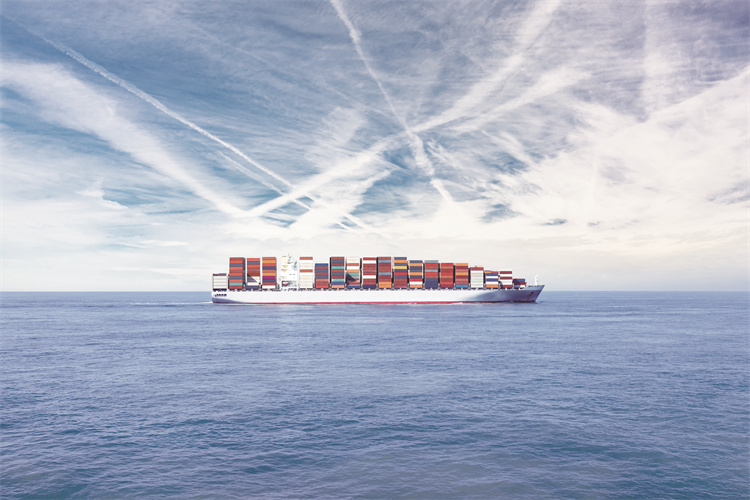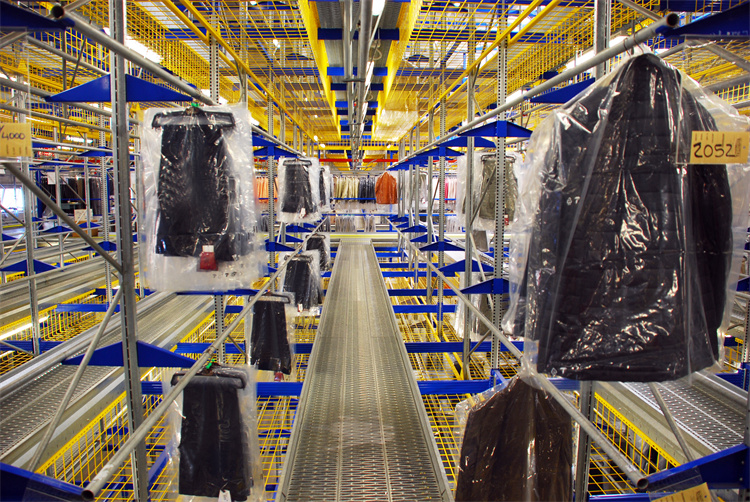Analysis of Customs' Role and Challenges in the Global Economy

Customs play a crucial role in international trade by regulating the flow of goods across borders. They ensure compliance with laws, protect domestic industries, and collect revenue. In emerging markets, customs revenue can account for about one-third of total tax revenue, highlighting their economic significance. Understanding customs' influence on global economies is vital. Their impact extends beyond trade facilitation to shaping economic policies and enhancing public safety. Effective customs practices contribute to efficient logistics, supporting global trade and economic growth.
Understanding Customs and Their Role
Definition of Customs
Customs refer to the governmental authority responsible for regulating the flow of goods across international borders. They ensure that all imports and exports comply with national laws and international agreements. Customs play a pivotal role in maintaining the economic stability of a country by overseeing trade activities.
Historical Background of Customs
The concept of customs dates back to ancient civilizations. For instance, ancient Egypt and the Orient introduced customs duties to meet the financial needs of the state. These early customs systems laid the groundwork for modern practices. In 1275, Edward I established the National Customs Collection System in England, marking a significant development in the regulation of trade. The roots of smuggling can be traced back to the 12th century, highlighting the longstanding challenges customs have faced in enforcing trade laws.
Modern Customs Practices
Today, customs authorities have evolved to address a wide range of responsibilities. They not only focus on fiscal duties but also play crucial roles in economic protection and security. Customs agencies confront major global challenges, such as preventing illegal trade and ensuring the safety of citizens. Modern customs practices involve advanced technologies and international cooperation to enhance efficiency and effectiveness.
The Function of Customs in Trade
Customs serve several essential functions in international trade. They regulate and ensure compliance with trade laws, collect revenue, and protect domestic industries.
Regulation and Compliance
Customs authorities enforce regulations to ensure that goods entering or leaving a country comply with legal standards. They inspect shipments, verify documentation, and apply tariffs or duties as necessary. This regulatory function helps maintain fair trade practices and prevents the entry of illegal or harmful goods.
Revenue Collection
Customs duties contribute significantly to government revenue. In many emerging markets, customs revenue accounts for a substantial portion of total tax income. By collecting tariffs and taxes on imported goods, customs support the financial stability of a nation. This revenue is crucial for funding public services and infrastructure development.
Customs' Impact on Global Trade

Customs authorities significantly influence global trade dynamics. Their actions can either facilitate or hinder the movement of goods across borders, impacting economies worldwide.
Positive Impacts
Facilitation of Trade
Customs play a pivotal role in streamlining international trade. By ensuring compliance with trade regulations, they help maintain a smooth flow of goods. This facilitation reduces delays at borders, allowing businesses to operate efficiently. Customs authorities also implement modern technologies, such as electronic data interchange systems, to expedite customs clearance processes. These advancements enhance trade efficiency and contribute to economic growth.
Protection of Domestic Industries
Customs duties serve as a protective measure for domestic industries. By imposing tariffs on imported goods, customs authorities provide local producers with a competitive edge. This protection encourages domestic production and supports local employment. Additionally, customs duties generate revenue for governments, which can be reinvested in infrastructure and public services, further bolstering the economy.
Negative Impacts
Trade Barriers
While customs duties protect domestic industries, they can also create trade barriers. High tariffs may discourage international trade by making imported goods more expensive. This situation can lead to reduced trade volumes and limit market access for foreign businesses. Consequently, countries may experience strained trade relations and decreased economic cooperation.
Increased Costs for Businesses
Customs duties and regulations can increase operational costs for businesses. Importers often face additional expenses due to tariffs and compliance requirements. These costs can be passed on to consumers, resulting in higher prices for goods. Moreover, businesses may need to invest in resources to navigate complex customs procedures, further impacting their profitability.
Case Studies of Customs' Influence
Case Study 1: European Union
Overview of Customs Practices
The European Union (EU) operates a unified customs system known as the Customs Union. This system allows goods to move freely between member states without additional tariffs. The EU customs authorities enforce common external tariffs on goods entering from non-member countries. This approach simplifies trade within the EU and strengthens its economic position globally. Customs procedures in the EU focus on ensuring compliance with regulations, protecting the internal market, and facilitating trade.
Economic Impact Analysis
The EU faced challenges in maintaining smooth trade flows, impacting revenue collection. Despite these challenges, the EU continues to improve customs processes to enhance compliance and reduce risks.
Case Study 2: United States
Overview of Customs Practices
The United States Customs and Border Protection (CBP) oversees customs operations. CBP enforces trade laws, collects duties, and ensures the safety of goods entering the country. The U.S. customs system emphasizes security and compliance, using advanced technologies to monitor trade activities. CBP collaborates with international partners to streamline customs procedures and facilitate legal trade.
Economic Impact Analysis
U.S. customs practices play a crucial role in the national economy. By collecting duties, CBP contributes to government revenue, funding public services and infrastructure. The U.S. customs system also protects domestic industries by imposing tariffs on imported goods. However, trade policies and global events, such as the COVID-19 pandemic, have influenced customs operations. Supply chain disruptions affected revenue collection and highlighted the need for efficient customs processes. The U.S. continues to adapt its customs practices to support economic growth and ensure the smooth movement of goods.
Challenges and Opportunities in Customs Practices
Challenges
Corruption and Inefficiency
Corruption poses a significant challenge in customs operations. It undermines trust and disrupts fair trade practices. Officials may engage in corrupt activities, leading to revenue loss and unfair advantages for certain businesses. Inefficiency also hampers customs processes. Delays in processing shipments can increase costs for businesses and slow down trade. Streamlining procedures and enhancing transparency can mitigate these issues.
Technological Barriers
Many customs agencies face technological barriers. Outdated systems hinder efficient processing and data management. Without modern technology, customs authorities struggle to keep up with the increasing volume of global trade. Implementing advanced technologies can improve accuracy and speed in customs operations. However, the cost and complexity of upgrading systems remain significant obstacles.
Opportunities
Technological Advancements
Technological advancements offer promising opportunities for customs. Innovations like blockchain and artificial intelligence enhance data accuracy and streamline processes. These technologies enable real-time tracking and verification of goods, reducing errors and delays. Customs authorities can leverage these tools to improve compliance and efficiency. Investing in technology can transform customs operations and support global trade.
International Cooperation
International cooperation strengthens customs practices. By collaborating with other countries, customs authorities can share information and best practices. This cooperation helps combat illegal trade and enhances security. Agreements like Free Trade Agreements (FTAs) facilitate smoother trade flows. As Camilla, an expert in customs governance, notes, "Someone within the company needs to keep an oversight to make sure that such FTAs are taken into account." This oversight ensures that businesses benefit from international agreements, promoting economic growth.
Future Trends in Customs and Global Economies

Emerging Trends
Digitalization of Customs Processes
Customs administrations worldwide are embracing digitalization to enhance efficiency and transparency. The integration of advanced technologies like blockchain and artificial intelligence is transforming customs operations. These technologies enable real-time tracking and verification of goods, reducing errors and delays. Customs authorities can now process shipments faster, ensuring compliance with trade regulations. This shift towards digital processes not only streamlines operations but also strengthens the integrity of global supply chains.
The rapid growth of e-commerce presents both challenges and opportunities for customs. As online shopping increases, customs must adapt to handle the surge in small parcel shipments. Digital tools help manage this influx by automating processes and improving data accuracy. By leveraging technology, customs can better facilitate trade and support economic growth.
Increased Global Collaboration
Global collaboration among customs authorities is becoming increasingly important. Countries are working together to share information and best practices, enhancing security and efficiency. International agreements, such as Free Trade Agreements (FTAs), play a crucial role in facilitating smoother trade flows. These agreements reduce barriers and promote economic cooperation, benefiting businesses and consumers alike.
Customs authorities also collaborate to combat illegal trade and protect the environment. Initiatives related to climate change and environmental protection are gaining traction. By working together, customs can address global challenges and contribute to sustainable development.
Predictions for the Future
Impact on Global Trade
The future of global trade will be shaped by evolving customs practices. As digitalization continues, customs processes will become more efficient and transparent. This transformation will facilitate the movement of goods across borders, reducing trade barriers and costs. Businesses will benefit from faster customs clearance, enabling them to compete more effectively in the global market.
However, customs duties will continue to impact trade dynamics. While they protect domestic industries, they can also increase production costs and restrict free trade. Balancing these effects will be crucial for maintaining healthy trade relationships and promoting economic growth.
Economic Growth and Development
Customs will play a pivotal role in driving economic growth and development. Efficient customs processes support global trade, which in turn boosts economic activity. By embracing technological advancements and fostering international cooperation, customs can enhance their contribution to economic prosperity.
The modernization of customs practices will also support the emergence of customs unions and regional trade agreements. These developments will create new opportunities for businesses and strengthen economic ties between countries. As customs continue to evolve, they will remain a key player in shaping the future of global economies.
The Role of JUSDA in Modern Logistics
JUSDA's Integration with Customs
Enhancing Supply Chain Efficiency
JUSDA revolutionizes the logistics landscape by integrating seamlessly with customs processes. The company streamlines customs clearance, expediting cargo movement across borders. By embracing digital documentation, JUSDA reduces paperwork and enhances efficiency. This approach ensures swift and eco-friendly operations, minimizing delays and costs. The use of technology automates customs procedures, which minimizes human error and speeds up processing times. These streamlined processes significantly enhance the overall efficiency of supply chains.
Leveraging Technology for Compliance
JUSDA leverages advanced technology to ensure compliance with customs regulations. The company's JusLink platform integrates IoT, cloud computing, and big data to facilitate real-time collaboration. This integration strengthens customs operations by providing accurate documentation and timely submission. Continuous improvement in these processes reduces risks and enhances compliance. By investing in research and development, JUSDA remains at the forefront of industry standards, pioneering new solutions to address evolving challenges.
JUSDA's Contribution to Global Economies
Supporting International Trade
JUSDA plays a crucial role in supporting international trade through efficient logistics solutions. The company prioritizes sustainability by incorporating rail transportation into its logistics network. By utilizing trains for cargo movements, JUSDA minimizes carbon emissions and promotes greener supply chain practices. This commitment to sustainable logistics not only reduces environmental impact but also enhances operational efficiency. JUSDA's efforts in streamlining customs processes ensure the smooth and legal movement of goods, contributing to global trade success.
Industry-Specific Solutions
JUSDA offers tailored logistics solutions for various industries, including electronic manufacturing, automotive, and medical health. The company provides specialized supply chain management services that meet the unique needs of each sector. By focusing on industry-specific solutions, JUSDA supports businesses in navigating complex customs regulations. This approach enhances trade facilitation and boosts economic growth. JUSDA's commitment to innovation and efficiency positions it as a key player in shaping the future of global economies.

JUSDA Solutions
To provide you with professional solutions and quotations.
Customs significantly shape global economies by ensuring the smooth and legal movement of goods. They enhance compliance and reduce risks through efficient processes and technology. Customs administrations have evolved to focus on trade facilitation and data utilization, addressing evolving trade flows. Strengthening customs enforcement is essential for combating illicit trade and protecting society. Embracing innovations in customs operations will lead to more efficient and transparent procedures. Further research and understanding of customs' influence can drive successful global trade operations.
See Also
Revealing the Influence of International Trade Policies on Economies
The Significance of Global Trade Supply Chains
Discovering Triumph in International Trade with JUSDA
Unleashing Triumph: The Impact of Supply Chain Transparency on Global E-commerce
Jusda Supply Chains and Worldwide Consumer Needs: An In-Depth Exploration
